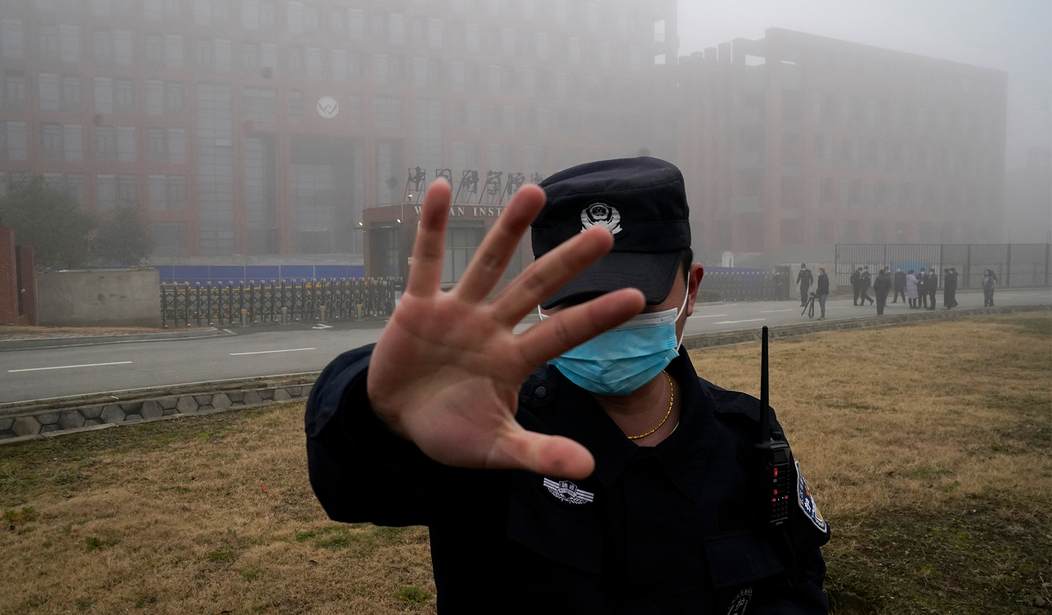There is a rare condition called situs inversus, a medical oddity in which a body's internal organs are mirror-imaged from the usual arrangement. Normally people with this rare condition lead normal lives, with the possible exception of being able to better survive a ninja attack since ninjas always go for the heart, and the heart isn't where a ninja would expect to find it.
In China, however, for the first few months of 2023, there has been a significant increase in the number of infants observed with situ inversus, and scientists are a bit confused as to why.
Doctors in China are reporting a startling and unexplained spike in fetuses with situs inversus, a rare congenital condition in which the organs in the chest and abdomen are arranged in a mirror image of their normal positions.
In the first seven months of 2023, the rate of fetuses identified with the condition quadrupled compared with historic rates, according to a brief report appearing in the New England Journal of Medicine Thursday.
For the report, doctors from two big obstetric centers in the cities of Shanghai and Changsha combined their centers' clinical records from January 2014 through July 2023. The doctors found that from 2014 to 2022, the yearly total of situs inversus cases was typically about five to six per 10,000 pregnant people undergoing ultrasounds. But, in 2023, the rate jumped to nearly 24 cases per 10,000 ultrasound screenings.
Let's set aside the usual discussion of the use of the term "pregnant people" for another day.
Looking at the numbers and the charts in the article, it's obvious that there is a spike and that it is sudden and significant - and that things have dropped back towards the mean now. These numbers make one wonder; why during this time, and why China? Well, China has been messing around with things that they really oughtn't, and while (speaking as a biologist) it's difficult to see how a virus could have any effect on a condition like this, Chinese researchers seem to think it's possible.
Without supporting evidence, the doctors speculate it could be tied to a surge in COVID-19 cases, which began at the end of 2022 when China abruptly lifted its zero-COVID policy. The subsequent wave of COVID-19 ultimately infected around 82 percent of China's population, which is over 1.4 billion people, the authors wrote. COVID-19 cases peaked at the end of December, and the wave extended into early February.
Note that disclaimer: "Without supporting evidence." Without supporting evidence, even this speculation is worth doodley-squat. This is a fancy way of saying, "We're stumped." Correlation there may be, but correlation does not equal causation, and these doctors cited here really ought to know better.
There is some evidence that COVID-19 can cause issues with chromatin, which helps package long DNA strands into compact chromosomes that can fit into a cell's nucleus. It would seem, however, to be a long way from that (if confirmed) to increasing the incidence of a single, previously known recessive allele, especially since there do not appear to have been any other such specific, previously known, inherited genetic conditions tied to COVID outbreaks.
According to the Cleveland Clinic, situs inversus is a genetic condition and appears to be a simple Mendelian recessive, meaning that a recessive allele is required from both parents.
A genetic mutation in one or more of several different genes causes situs inversus. More than 100 genes have been linked to defects related to sidedness in your body. Some of these genes include ANKS3, NME7, NODAL, CCDC11, WDR16, MMP21, PKD1L1 and DNAH9.
Situs inversus is inherited in an autosomal recessive pattern. This means both parents need to pass a mutated gene onto their children for them to inherit the genetic trait or condition.
Mind you, biology is an imprecise science at best; it's not like engineering, chemistry or astronomy, where things can be weighted, measured, and effects reproduced. Biology is "fuzzy" (sometimes literally) and imprecise; organisms, even simple ones, are complex beyond our ability to precisely model them. Any speculation as to COVID's relationship to a situs inversus occurrences is nothing more than that - speculation. In the case of this China outbreak, it may be nothing more than a statistical curiosity, and since most people with situs inversus go on to lead normal lives, it probably won't cause much of a blip in the world of medicine.
Chinese scientists have been up to some pretty suspicious activities of late, though - including some right here in the United States. These scientists, if they are in fact up to some kind of nefarious work that may result in genetic problems, well, they'd better keep a sharp eye out for ninjas.















Join the conversation as a VIP Member